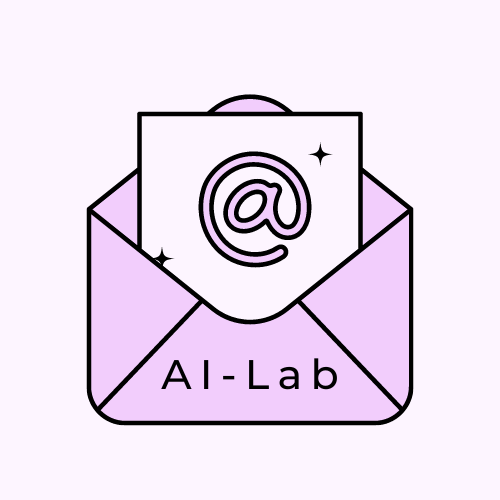Google Launches the "Gemini" Era with AI Advancements Google has unveiled a series of updates for its AI offerings, including the introduction of Gemini 1.5 Flash and enhancements for Gemini 1.5 Pro. Gemini 1.5 Flash is designed to be faster and more efficient while maintaining the ability for multimodal reasoning across a large amount of information.
OpenAI Launches GPT-4o with Multimodal Integration OpenAI has introduced GPT-4o, its new flagship model capable of integrating textual, audio, and visual inputs and outputs. This model aims to improve natural machine interaction, accepting and generating combinations of text, audio, and images.
AI Market Could Reach $184 Billion by 2024 Forecasts indicate that the artificial intelligence market could reach $184 billion by 2024, highlighting the growing integration of this technology into our daily transactions and its transformative impact on our way of life.
OpenAI Set to Challenge Google with AI-Powered Search Engine Bolstered by its partnership with Microsoft, OpenAI plans to launch an AI-powered search engine, posing a potential challenge to Google's dominance in this field. This launch is expected just before Google's annual I/O conference.
Media Coalition Sues Microsoft and OpenAI A group of major news publishers has filed a lawsuit against Microsoft and OpenAI for using copyrighted articles to train their AI models without authorization or payment.
Zoom Criticized for Emotion-Detecting AI Zoom has sparked controversy after announcing the development of an AI system capable of detecting emotions by analyzing users' faces and speech. This system, called 'Zoom IQ,' is designed to help salespeople improve their presentations based on the emotions of call participants.
DeepMind Co-Founder Mustafa Suleyman Launches Inflection AI Mustafa Suleyman, co-founder of DeepMind, has launched a new venture named Inflection AI with LinkedIn co-founder Reid Hoffman. This company aims to create consumer products focused on AI.
IRS Expands Voice Bot Options for Faster Service The U.S. Internal Revenue Service (IRS) has expanded its voice bot options to help taxpayers verify their identity and set up or modify payment plans without long wait times on the phone.
Forecasts show that the artificial intelligence market could reach $184 billion by 2024, highlighting the growing integration of this technology into our daily transactions and its transformative impact on our lifestyle. To better understand this spectacular growth and the economic impact of AI, we will explore various aspects of this technological revolution.
AI in Daily Transactions
a. Automation and Efficiency
AI has revolutionized daily transactions by automating many previously manual processes. For example, chatbots and virtual assistants enable businesses to provide 24/7 customer service, reducing operational costs and improving customer satisfaction. AI algorithms can analyze vast data sets to optimize business decisions, such as inventory management and personalized offers for customers.
b. Payments and Financial Services
In the financial sector, AI plays a crucial role in securing transactions and detecting fraud. Machine learning systems analyze transactional behaviors to identify suspicious activities, making payments safer. Additionally, AI is used to automate lending processes, offering more accurate and faster credit evaluations.
AI's Impact on the Labor Market
a. Creation of New Jobs
AI creates new job opportunities in fields such as software development, data science, and cybersecurity. Companies seek professionals capable of developing, managing, and securing AI systems. This demand has led to the creation of new training programs and certifications to bridge the skills gap.
b. Redefinition of Existing Roles
AI also transforms existing roles by automating repetitive tasks and allowing employees to focus on more strategic tasks. For example, in healthcare, AI assists in analyzing medical images, enabling radiologists to concentrate on complex diagnostics and patient interactions.
Innovation and Economic Competitiveness
a. Technological Advancements
Investments in AI drive technological innovation. Companies adopting AI can develop new products and services more quickly and accurately. This includes technologies such as autonomous vehicles, personalized recommendation systems, and predictive analytics tools.
b. Competitive Advantage
Companies integrating AI into their operations gain a significant competitive advantage. AI allows for better understanding of markets and customers, optimization of supply chains, and increased responsiveness to market changes. Companies can thus improve their operational efficiency and increase their market share.
This week, we discuss Elon Musk's presentation to Tesla shareholders, Optimus, and the autonomous vehicle market.
Become a Premium member of AI Lab and get lifetime access to over 10 AI tools, advice on implementing AI in your business, and our best content reserved for members.
How It Works:
Each week, we secure an exclusive deal (or lifetime access) with the creators of new AI tools like Reply.io, Humata.ai, Fliki, Tome.app, Looka, etc.
By becoming an AI Lab Premium member, you can choose lifetime access to 10 software tools and receive our exclusive content written by guest AI experts. You will also get additional benefits such as newsletter recommendations and much more...
Subscribe To AI Lab Premium

Tidak ada komentar:
Posting Komentar